Ghosts, demons and cinematic experiments
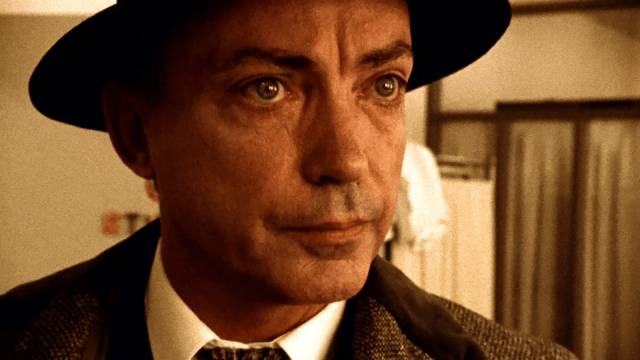
As always, trying to keep up here with what I’ve been watching is like running the Red Queen’s Race … by the time I’ve written about one movie, there are three or four additional ones awaiting their turn. And as always, it’s a very mixed bag so there’s little chance of gathering them together to make some kind of coherent point. I was going to add a third part to my Spring round-up this week, but two new acquisitions demanded preferential attention.
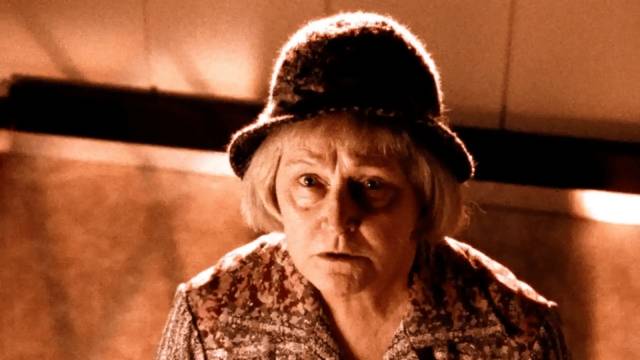
The Kingdom (Lars von Trier, 1994-2022)
I just re-watched Lars von Trier’s The Kingdom (Riget) for the first time in years because the belated third series has finally been released on disk along with the two original series. I first saw The Kingdom (1994) screened at the Cinematheque in 1996 – I can’t recall now whether it was a single marathon session, or shown over two evenings – and I loved it. The blend of comedy and genuinely unsettling horror worked very well, propelled by the ragged hand-held technique, which back then still seemed fresh. The characters were vivid and the elements of hospital soap opera and satire provided a solid grounding for the ghost story.
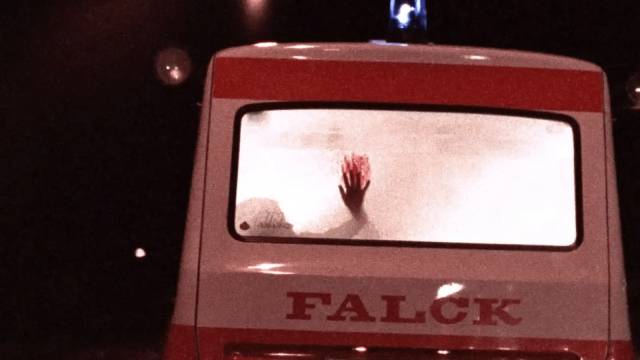
I didn’t get to see the second series, Riget II (1997), until I bought a Danish four-disk DVD set released in 2004. This expanded the various narrative strands established in the first series, most importantly by developing the backstory of the ghost, a young girl brutally killed by her father who was a prominent doctor (she was illegitimate and an embarrassment to him), while also elaborating on the occult – there are Satanists in the hospital basement and the evil doctor (the great Udo Kier) is still lurking around, having impregnated a doctor who gives birth to a deformed reincarnated form of himself. While the various hospital soap opera elements become more comedic (the Swedish attending physician flies to Haiti to obtain the zombie drug which he intends to use against Krogshøj [Søren Pilmark], the younger doctor he hates), the story of the child (Udo again, fitted with a rapidly growing and mutating body) becomes more emotionally involving – he fights against the evil born into him, eventually sacrificing himself in order to do no harm.
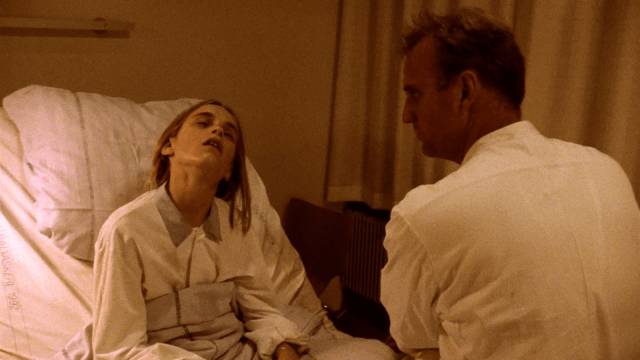
Although von Trier and co-writer Niels Vørsel wrote a concluding third series at the time, they failed to get backing from Danish television executives and the various narrative threads were left loose for twenty-five years until, prompted by David Lynch’s return to Twin Peaks in 2017, the pair resurrected those earlier scripts and reworked them to create The Kingdom: Exodus (2022), a continuation and conclusion to the trilogy. The biggest problem they faced was the fact that several key cast members had died in the meantime – most crucially, Ernst-Hugo Järegård, who as the perpetually angry Swede Stig Helmer had dominated the first two series, and Kirsten Rolffes, whose Sigrid Drusse had propelled the narrative with her investigation into the haunting.
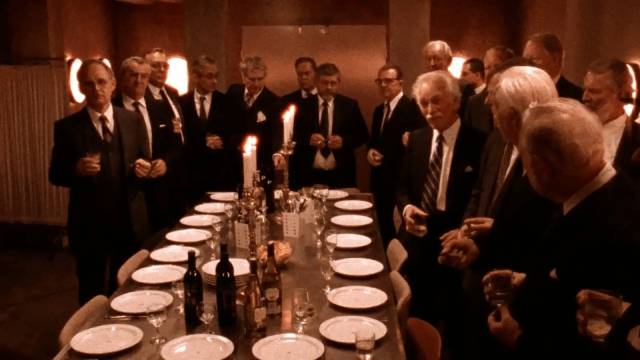
The filmmakers came up with analogues for these characters which provide an ingenious workaround while unavoidably calling attention to the absences. Beginning very self-referentially, they have a woman, Karen Svensson (Bodil Jørgensen), watching the original series on video, unsatisfied with the way it hadn’t resolved Mrs Drusse’s story. Prone to sleepwalking, Karen gets into a cab in the middle of the night and ends up at the hospital where she takes up the investigation with the help of orderly Balder (Nicholas Bro), whom everyone calls Bulder because of his resemblance to Mrs Drusse’s son (who had been played by Jens Okking). Before long, as the pair explore the subterranean tunnels beneath the hospital, they discover doppelgangers of themselves – this doubling becomes the central facet of the narrative, with the mirroring of good and evil centred in the haunted realm upon which the hospital rests.
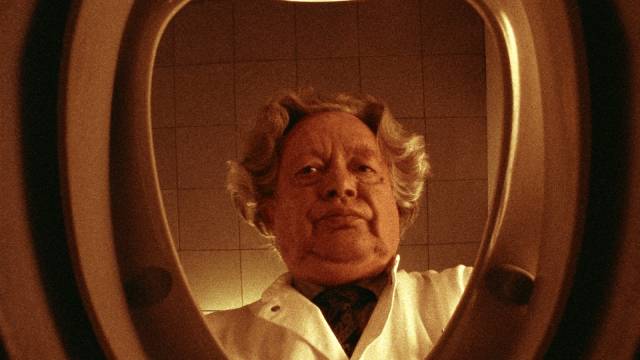
In that realm, the swamp on which it was built still exists and the second series’ child (Udo again, still working in his late seventies) has become essentially the living body of the hospital, consumed by grief, his weeping producing tears which now threaten to drown him. As Karen and Balder try to save the child, Helmer’s son (Mikael Persbrandt) arrives to take up his father’s former position, hoping to discover what had happened to Stig. And down in the basement tunnels, Krogshøj scurries around, still under the influence of the zombie drug.
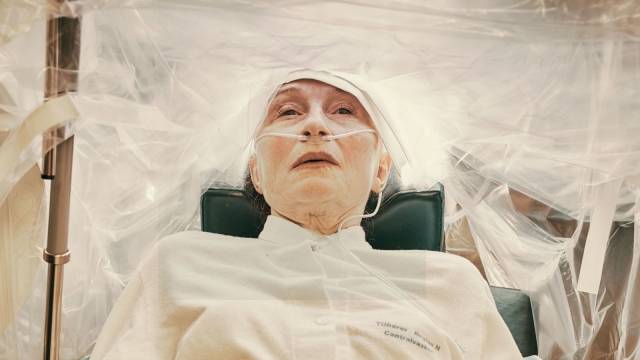
While some of von Trier and Vørsel’s inventions are ingenious, and they expand the mythology with logical new elements – those Satanists previously glimpsed are now a key part of the story, working to open a portal between this world and Hell using doppelgangers to confuse those working to prevent a catastrophe – Exodus can’t quite recover the freshness and energy of the original series, at times feeling like an ingenious simulacrum which lacks a genuine spark of life. Which is not to say that it isn’t entertaining, only that the mix of comedy and the supernatural feels more forced, while the presence of Willem Dafoe as the Grand Duc, head of the Satanists and the Devil’s representative, seems a little jarring to me, like dropping a famous face into a television series to boost ratings.
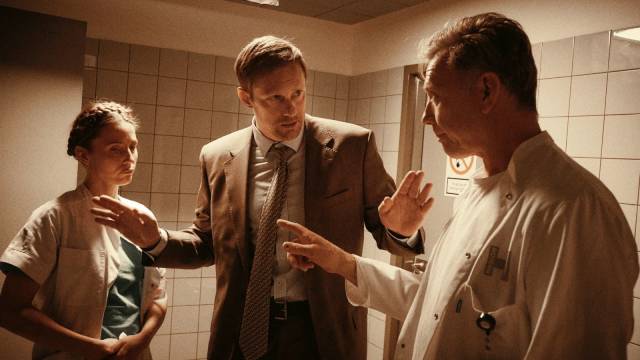
Still, I enjoyed revisiting The Kingdom and being given some kind of resolution to a story which had been left hanging for a quarter century. On the whole, the MUBI seven-disk Blu-ray set does a nice job of delivering the deliberately unpolished imagery – shot on super-16mm film stock and run through a bleach bypass process to mute colours and increase contrast. The biggest difference between this and the earlier DVDs is a change in aspect ratio, from 1.41:1 to 1.78:1. The super-16mm frame is naturally wider than 16mm, so for the original broadcasts the image had been cropped slightly on the sides; this new version adds that width back while slightly cropping the top and bottom of the frame. The change doesn’t compromise the image, rather reflecting two options inherent in the original material. (One technical point: the original shows ran at the standard European rate of 25fps, but MUBI has converted them to the North American 24fps, which effectively slows them down 4%. Although this isn’t apparent to my eye, it does give each series a running time approximately twelve minutes longer than the European versions.)
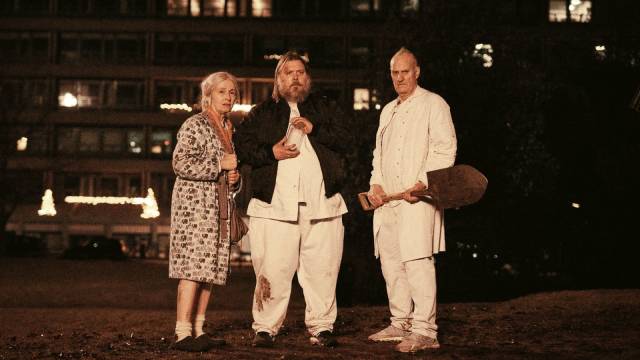
The Kingdom was an important transitional work for von Trier. He had painted himself into something of a creative corner with the increasingly rigorous formal approach to filmmaking of the Europe Trilogy; in the third film, Europa (1991), the images are carefully crafted, often with multiple layers which give the film an oppressive, claustrophobic ambience (which is quite appropriate to the material). But with The Kingdom, you can see him throwing all that off – there’s an aggressive disregard of carefully composed images as the hand-held camera is constantly racing to catch action on the fly; there’s also a playful tone, with the overtly comedic treatment of the hospital bureaucracy and a move away from heavier thematic concerns. This sense of freedom and play led to the Dogme 95 manifesto which has influenced the free use of the camera and the jagged editing of all von Trier’s subsequent work, though following the first series he returned with a vengeance to heavier themes in Breaking the Waves (1996) and all the features which followed.
The MUBI disks include extras carried over from the old DVD set – some scene-specific commentary, interviews, and a making-of documentary – but nothing on the third series, although there’s a print interview with von Trier in an accompanying booklet in which he discusses Exodus.
*
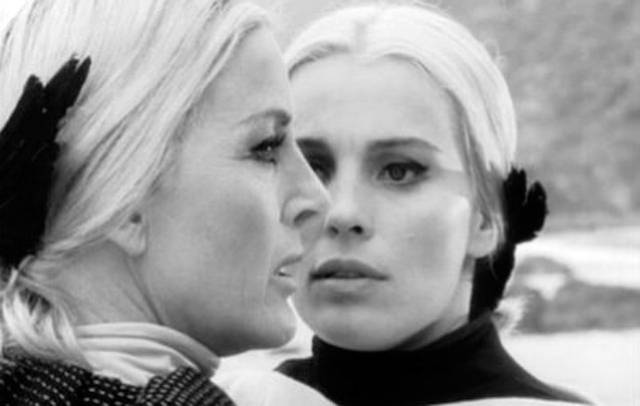
Incubus (Leslie Stevens, 1966)
Leslie Stevens is best-known as the creator, producer and sometime writer-director of The Outer Limits (1963-65), which remains a landmark of filmed science fiction. That would be enough to give him a place in pop culture history, but he began as a successful playwright and got into movies in 1960 – making the psychological thriller Private Property (1960) and the historical drama Hero’s Island (1962) – before turning to television. While he continued to direct for television and occasionally the big screen, from the mid-’60s into the ’90s, he concentrated on writing and producing TV movies and series episodes. He also wrote a sci-fi novel called est: The Steersman Handbook which reputedly inspired Werner Erhard to name his self-help company Erhard Seminars Training, est for short; Erhard apparently required all his staff to read the book.
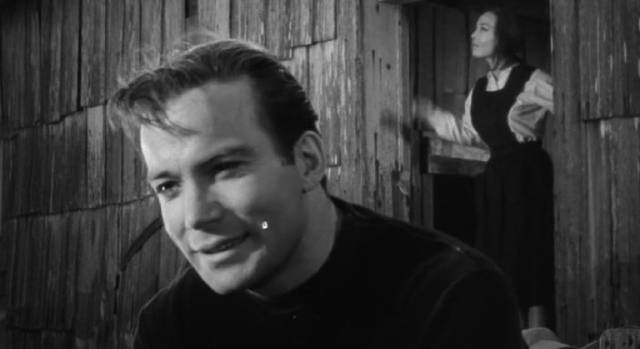
But nothing in Stevens’ career can prepare you for the movie he made in the wake of the network’s cancellation of The Outer Limits in early 1965. Made in part to continue his association with key OL collaborators composer Dominic Frontiere and cinematographers Conrad Hall and William Fraker, Incubus (1966) seems to spit in the face of an industry predicated on commercial considerations above all else. Not only does it have a faux Medieval setting and an air of Bergmanesque allegory, it was shot in Esperanto, a language constructed in the late 1800s by L.L. Zamenhof, an Ashkenazi Jew born in the Russian Empire who wanted to create an international language untethered to existing nationalities. The idea that a movie in Esperanto would fare better internationally seems absurd (even now it’s estimated that there are only around a hundred-thousand speakers in the world), as it would have to be subtitled in every market (Stevens insisted that it must not be dubbed). It apparently didn’t help that the pronunciation of the cast raised laughter among actual Esperanto speakers.
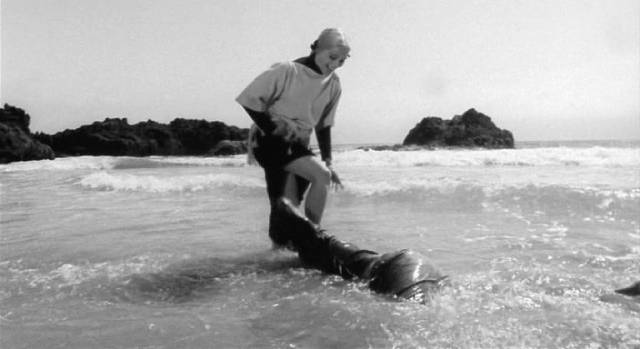
Not surprisingly, the movie quickly vanished, lingering as a legend largely because it starred William Shatner, who had been in one episode of The Outer Limits and was just about to become a household name when Star Trek debuted in the Fall of 1966. Decades later, a 16mm print turned up in France. This was hardly an ideal source, not only because of the compromised image quality, but also because it had burned-in French subtitles which had to be covered with a black box to make room for English subtitles when it was transferred to DVD. This was released on disk in 2001, so at last it was possible to get some idea of Stevens’ cinematic folly. Despite the problematic image quality, the disk came with two commentary tracks – one with Shatner, the other with producer Anthony Taylor and cinematographers Hall and Fraker – as well as an on-camera interview with the latter three.
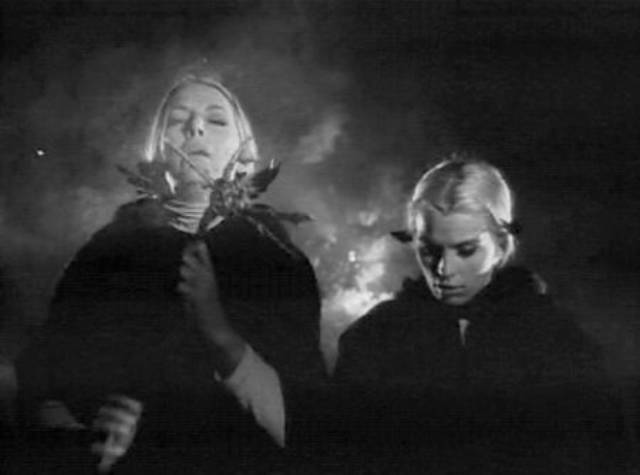
Last year it was announced that a better source had been located and was being scanned in 4K. This was released in December in a limited edition dual-format 4K UHD/Blu-ray edition from Le Chat Qui Fume in France. The improvement in visual quality comes as no surprise, but once again the disk was mastered from a French-subtitled source (a 35mm print this time) – it seems that the film only found distribution in France. The disk offers two options: there’s a full-frame 1.37:1 version, which has the burned-in subtitles with no English option, and a 1.78:1 version which crops the subtitles out and includes optional English subtitles. Whether this was intended or not by Stevens, the framing is comfortable and doesn’t seem compromised; so it’s finally possible to watch the movie without the distracting black box.
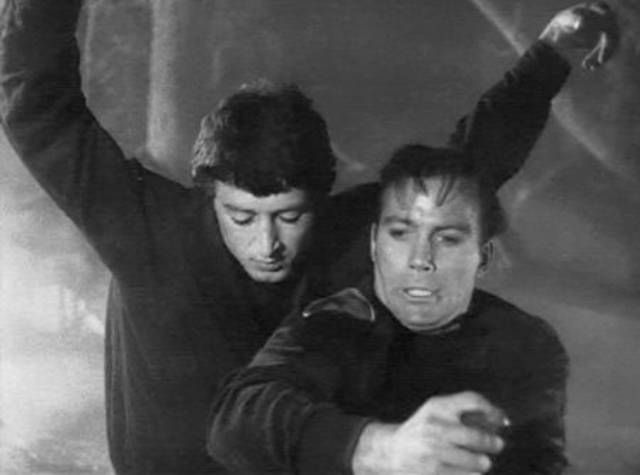
And so … what to make of Incubus? Was Stevens serious? Was it intended as a joke, a straight-faced parody of international art cinema? It’s more than twenty years since I listened to the commentaries and interview on the DVD, so I can’t say what the opinions of those involved were (if I can find the time, I may check them out again). And yet the film has an oddly haunting quality which invites you to take it seriously while you’re watching. And certainly, the visual quality combined with Frontiere’s score evokes memories of The Outer Limits and if the story had been given a contemporary setting it might well have stood with The Forms of Things Unknown as an episode which stretched the series in unexpectedly experimental directions.
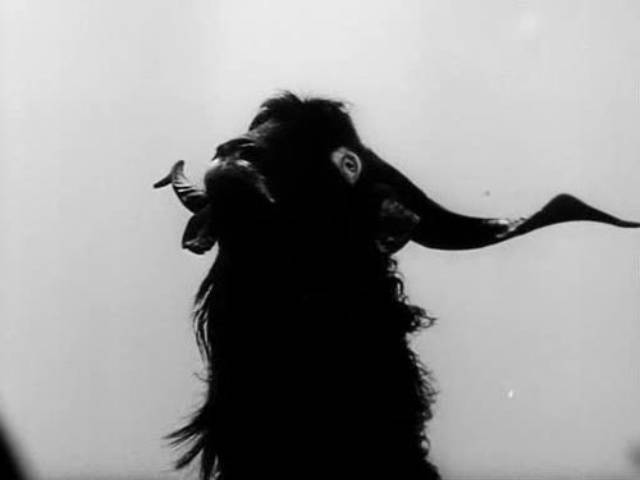
In a rural community in some unspecified past time, Marc (Shatner) is a soldier recovering from his traumatic experiences in war. He lives with his sister Arndis (Ann Atmar), who makes the mistake of staring at the sun during an eclipse and goes blind. Meanwhile, a group of succubi scour the land for corrupt souls, killing men and sending them to Hell. One of these, Kia (Allyson Ames, who strangely had played a character named Arndis in the OL episode The Production and Decay of Strange Particles), is tired of dealing with soiled souls and wants to corrupt someone pure – a desire which garners a warning from her sister Amael (Eloise Hardt), who tells her of the danger of falling in love. Nonetheless, Kia sets her eyes on Marc and does indeed fall in love. So the demons summon an Incubus (Milos Milos) to kill Marc and rape and murder Arndis. Milos was a Serbian actor with a wild life which ended in a murder-suicide with Mickey Rooney’s estranged wife Barbara Ann Thomason in 1966, the ensuing scandal no doubt playing a part in the film’s lack of distribution.
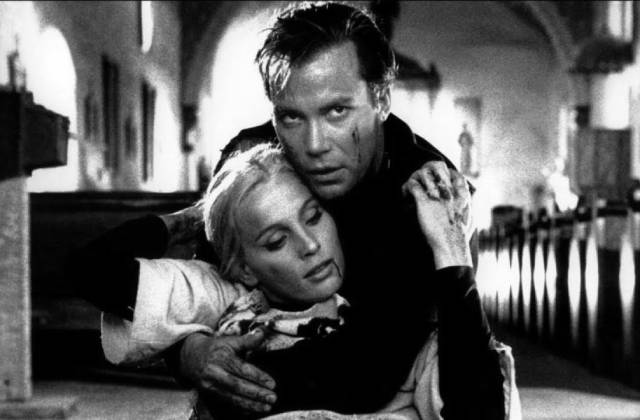
The fraught climax involves a lot of skewed Christian iconography, a goat-shaped demon, and Kia’s declaration of love and her devotion now to the God of Light rather than the God of Darkness … but Marc himself has been compromised because, in avenging Arndis, his soul has taken on the crime of murder. What it’s all supposed to signify is anybody’s guess, but the film is undeniably compelling in its sheer strangeness and this new and improved edition secures its position as one of the oddest independent productions of the ’60s.
The Blu-ray unfortunately doesn’t include the original DVD extras (I’ll have to hold on to my copy), offering instead a short featurette about the production in French without English subtitles.
Comments